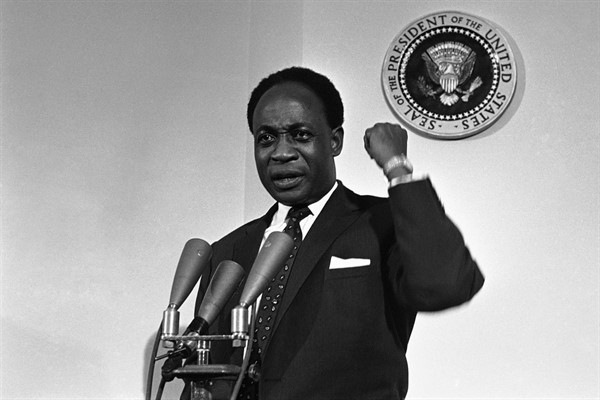In a recent article for The New York Times, the political theorist Adom Getachew observes that in “the past few years, decolonization has gained new political currency—inside the borders of the old colonial powers.” In many European capitals, statues of former imperialists have been defaced, toppled by protesters or removed by authorities, contributing to a resurgence of discussions about what “decolonization” means and how it can be put into action today.
This week on Trend Lines, Getachew joins WPR’s Elliot Waldman to talk about the history of anti-colonial nationalist movements that tried to remake the world in an egalitarian mold, eschewing old concepts of empire and subjugation—and the resonance of their vision today. Getachew is the Neubauer family assistant professor of political science and the college at the University of Chicago, and the author of “Worldmaking After Empire: The Rise and Fall of Self-Determination.” You can follow her on Twitter @AdomGetachew. Click here to read a transcript of an excerpt from the interview.
Listen:
Download: MP3
Subscribe: Apple Podcasts | RSS | Spotify
Relevant Articles on WPR:
As BLM Goes Global, It’s Building on Centuries of Black Internationalist Struggle
Legacies of Colonialism Are Holding Back Racial Justice in Britain and France
How Third-Worldism Can Be Reimagined Today
If you like what you hear on Trend Lines and what you’ve read on WPR, you can sign up for our free newsletter to get our uncompromising analysis delivered straight to your inbox. The newsletter offers a free preview article every day of the week, plus three more complimentary articles in our weekly roundup every Friday. Sign up here. Then subscribe.
Trend Lines is produced and edited by Peter Dörrie, a freelance journalist and analyst focusing on security and resource politics in Africa. You can follow him on Twitter at @peterdoerrie.
To send feedback or questions, email us at podcast@worldpoliticsreview.com.

